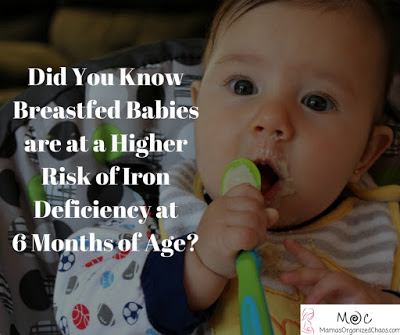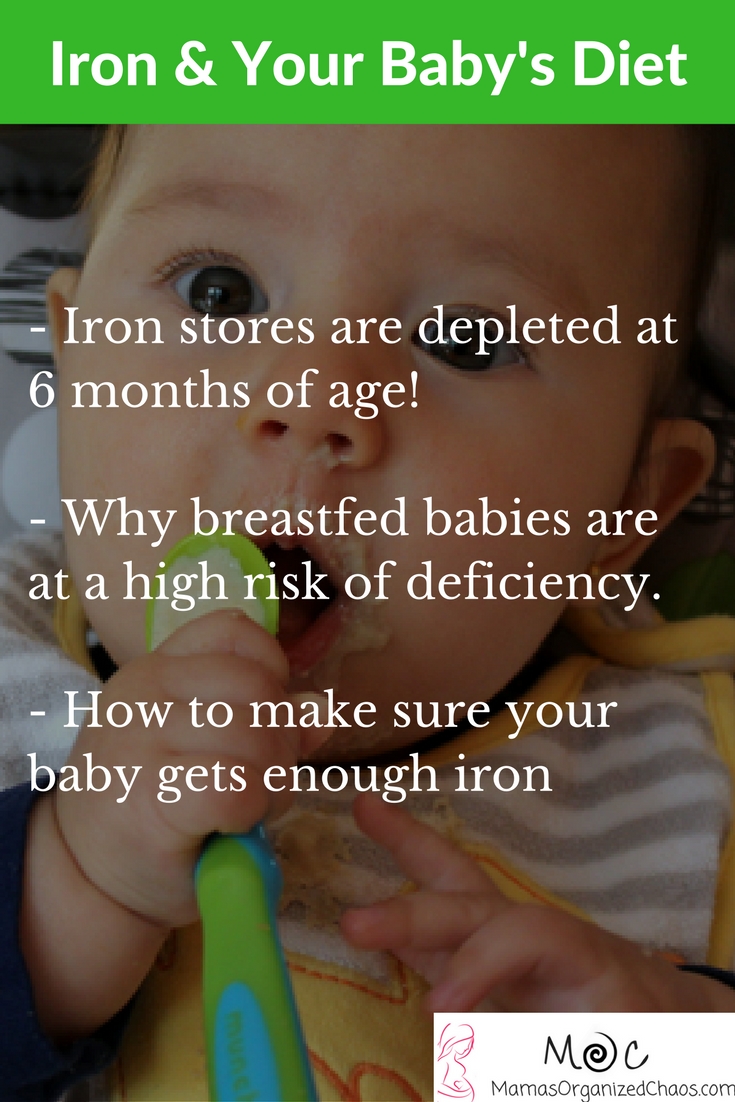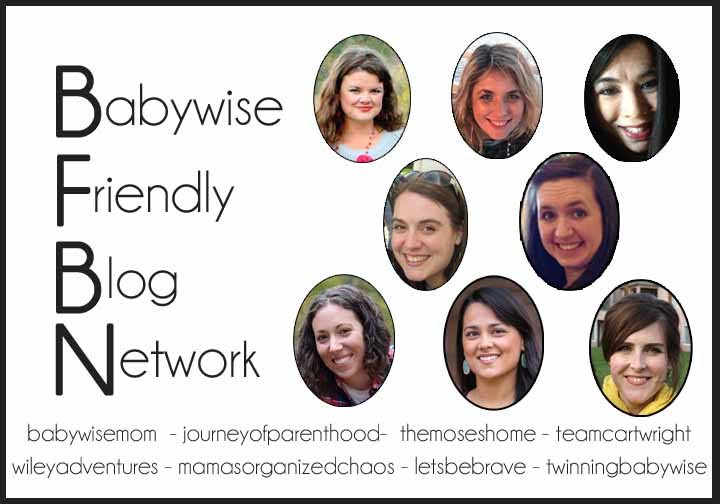When it comes to feeding your baby solid foods, there is one very important mineral to keep in mind- iron. Babies are actually born with a backup of iron stores. These iron stores supply iron to your little one for approximately the first 6 months of life, until they are depleted around that age. So, what does this mean exactly? It means you need to get iron into your baby so they don’t get deficient.
The next question is if the baby is breastfed or formula fed.
Formula fed babies are getting the iron they need from the formula they are drinking. Most formulas are iron-fortified. This means you don’t have to worry about iron deficiency.
Breastfed babies, on the other hand, do not get enough iron from breast milk. Breast milk actually contains very little iron. As a result, breast fed babies actually need some form of supplementation to get the iron that they need, otherwise they are at risk for being deficient. So, at 6 months of age, it is no longer safe to 100% breast feed your baby. There has to be supplementation somewhere.
Most parents are thinking about starting solid foods somewhere between the age of 4-6 months, with the trend now being to start at 6 months. My only caution with this, is that many babies don’t take to solid foods quickly, so if you are breastfeeding your baby and only start introducing solid foods at 6 months, there needs to be a quick turnaround on acceptance of the food, and a high focus on iron intake, in order to be sure your little one is getting enough. As with everything, every choice you make needs to consider everything that is right for your little one. The recommendation to start at 6 months is only part of the big picture to keep in mind.
The next question, is where do you focus in order to increase iron intake?
There are several good options:
1. Introduce a liquid vitamin that contains iron. Your 6-12 month old baby needs 11 mg of iron per day. Vitamins are a simple way to accomplish this goal.
2. Don’t be afraid of cereals. There is a rising trend to skip baby cereals because they “provide little to no nutrients”. This is not true! I go in to more detail of the science behind their nutritional value in this post on introducing solid foods to your baby, but the short version, is that cereals are easy to digest. They are a great place to start when the digestive system has had nothing but liquids to work with. Oatmeal is a whole grain. Whole grains we obviously known to be healthy. So, feel free to skip rice cereal, but don’t overlook the option of oatmeal. These cereals are not only easy for our little ones to digest, they are fortified with iron! You can get pretty creative with these cereals and even make them into baby pancakes once your baby is chewing.
3. Introduce iron rich foods as soon as possible. Meats, beans, grains, and vegetables are all good sources of iron. A full list of iron rich foods can be found at this link. Nothing compares to the levels that baby cereals provide! Chicken liver comes in second, with white beans and spinach at the next highest levels.
4. Shy away from dairy with meals. Calcium can actually inhibit the absorption of iron. So, try to feed dairy items high in calcium, as snacks away from meals if possible.
5. Include high levels of vitamin C. Vitamin C aids in the absorption of iron. This means you need to include lots of fruits and vegetables in your baby’s diet to help iron get processed in the right way!
As with any decision you make, it is important to have the full picture. Trends are trends. Science can help give us more insight. Iron is so essential to our diets and our health, and unfortunately, we talk more about trends than scientific facts at times. The scientific fact is that babies need iron supplementation starting at 6 months of age, and breastfed babies are at a higher risk for iron deficiency.

Other posts of interest:
When and How to Give Solid Foods to your Baby
When to Introduce Water to Your Infant
Weaning from Breastfeeding to Cows Milk



